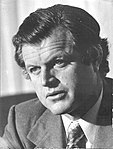
Each of the 50 U.S. states, the District of Columbia, and territories of the United States holds either primary elections or caucuses to help nominate individual candidates for president of the United States. This process is designed to choose the candidates that will represent their political parties in the general election.

The Iowa caucuses are quadrennial electoral events for the Democratic and Republican parties in the U.S. state of Iowa. Unlike primary elections, where registered voters cast ballots at polling places on election day, Iowa caucuses are meetings where voters gather to discuss and select candidates for their registered party. Political parties hold the caucuses, in contrast to most state-run primaries. Both presidential and midterm elections in Iowa use caucuses. The caucuses are also held to select delegates to county conventions and party committees, among other party activities.
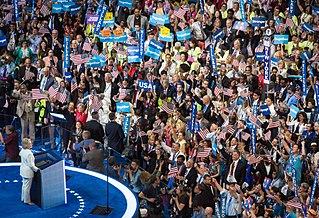
The Democratic National Convention (DNC) is a series of presidential nominating conventions held every four years since 1832 by the United States Democratic Party. They have been administered by the Democratic National Committee since the 1852 national convention. The primary goal of the Democratic National Convention is to officially nominate a candidate for president and vice president, adopt a comprehensive party platform, and unify the party. Pledged delegates from all fifty U.S. states, the District of Columbia, and the American territories, and superdelegates which are unpledged delegates representing the Democratic establishment, attend the convention and cast their votes to choose the party's presidential candidate. Like the Republican National Convention, the Democratic National Convention marks the formal end of the primary election period and the start of the general election season. Since the 1980s, national conventions have become mostly inaugural events for the winning candidate, since winners are announced long before the convention. In 2020, both major parties, and many minor parties, replaced their usual in-person conventions with virtual programs due to the COVID-19 pandemic.
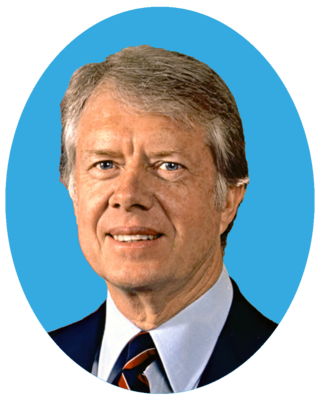
The 1980 Democratic National Convention nominated President Jimmy Carter and Vice President Walter Mondale for reelection. The convention was held in Madison Square Garden in New York City from August 11 to August 14, 1980.
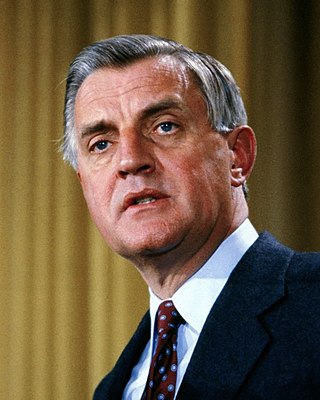
From February 20 to June 12, 1984, voters of the Democratic Party chose its nominee for president in the 1984 United States presidential election. Former Vice President Walter Mondale was selected as the nominee through a series of primary elections and caucuses culminating in the 1984 Democratic National Convention held from July 16 to July 19, 1984, in San Francisco, California.

From January 21 to June 3, 1980, voters of the Democratic Party chose its nominee for president in the 1980 United States presidential election. Incumbent President Jimmy Carter was again selected as the nominee through a series of primary elections and caucuses, culminating in the 1980 Democratic National Convention, held from August 11 to 14, 1980, in New York City.
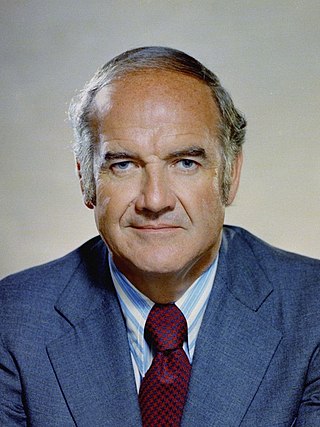
From January 24 to June 20, 1972, voters of the Democratic Party chose its nominee for president in the 1972 United States presidential election. Senator George McGovern of South Dakota was selected as the nominee through a series of primary elections, caucuses, and state party conventions, culminating in the 1972 Democratic National Convention held from July 10 to July 13, 1972, in Miami, Florida.
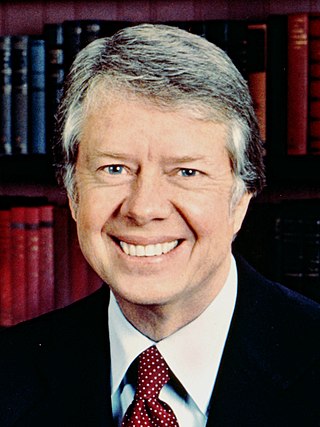
From January 27 to June 8, 1976, voters of the Democratic Party chose its nominee for president in the 1976 United States presidential election. Former Georgia governor Jimmy Carter was selected as the nominee through a series of primary elections and caucuses culminating in the 1976 Democratic National Convention held from July 12 to July 15, 1976, in New York City.

From January 21 to June 3, 1980, voters of the Republican Party chose its nominee for president in the 1980 United States presidential election. Retired Hollywood actor and two-term California governor Ronald Reagan was selected as the nominee through a series of primary elections and caucuses culminating in the Republican National Convention held from July 14 to 17, 1980, in Detroit, Michigan.
The results of the 2008 Democratic Party presidential primaries are the detailed outcomes of a series of contests by which members of the United States Democratic Party chose their candidate for the 2008 U.S. presidential election. The contests are held in each of the fifty U.S. states, as well as the District of Columbia, Puerto Rico, American Samoa, Guam, the U.S. Virgin Islands, and Democrats Abroad. The Northern Mariana Islands was the lone U.S. state or territory which did not have a primary or caucus election in 2008. The outcomes include totals of delegates selected as well as popular votes.

The 2008 United States presidential election in Iowa took place on November 4, 2008, as part of the 2008 United States presidential election. Voters chose seven representatives, or electors to the Electoral College, who voted for president and vice president.

The 2012 United States presidential election in Iowa took place on November 6, 2012, as part of the 2012 United States presidential election in which all 50 states plus the District of Columbia participated. Iowa voters chose six electors to represent them in the Electoral College via a popular vote pitting incumbent Democratic President Barack Obama and his running mate, Vice President Joe Biden, against Republican challenger and former Massachusetts Governor Mitt Romney and his running mate, Congressman Paul Ryan.

The 2020 United States presidential election in Iowa was held on Tuesday, November 3, 2020, as part of the 2020 United States presidential election in which all 50 states plus the District of Columbia participated. Iowa voters chose electors to represent them in the Electoral College via a popular vote, pitting the Republican Party's nominee, incumbent President Donald Trump of Florida, and running mate Vice President Mike Pence of Indiana against Democratic Party nominee, former Vice President Joe Biden of Delaware, and his running mate California Senator Kamala Harris. Iowa has six electoral votes in the Electoral College.

The 1980 presidential campaign of Ted Kennedy, United States Senator from Massachusetts, was formally launched on November 7, 1979, as Senator Kennedy, the youngest Kennedy brother, announced his intention to seek the Democratic Party nomination for the presidency of the United States in the 1980 presidential election against incumbent President Jimmy Carter.
In the 1976 United States presidential election, Jimmy Carter and his running mate, Walter Mondale, were elected president and vice president, defeating incumbent Republican president Gerald Ford and his running mate, Bob Dole.

The 1980 New Hampshire Democratic presidential primary was held on February 26, 1980, in New Hampshire as one of the Democratic Party's statewide nomination contests ahead of the 1980 United States presidential election.

The 1980 Massachusetts Democratic presidential primary was held on March 4, 1980. As part of the 1980 Democratic Party presidential primaries for the 1980 United States presidential election, this was the fourth primary since Iowa, Maine and New Hampshire. 112 pledged delegates to the 1980 Democratic National Convention were allocated to presidential candidates. U.S. Senator Ted Kennedy defeated incumbent President Jimmy Carter surprised by 78 pledged delegates and 590,404 popular votes. Kennedy defeated Carter in his home state.

The 1984 Maine Democratic presidential caucuses were held on March 4, 1984, as part of the 1984 United States Democratic Party presidential primaries for the 1984 United States presidential election. 27 delegates were allocated to presidential candidates.

In the 1980 United States presidential election, incumbent president Jimmy Carter and incumbent vice president Walter Mondale were defeated by Republican presidential nominee Ronald Reagan and vice presidential nominee George H. W. Bush.

